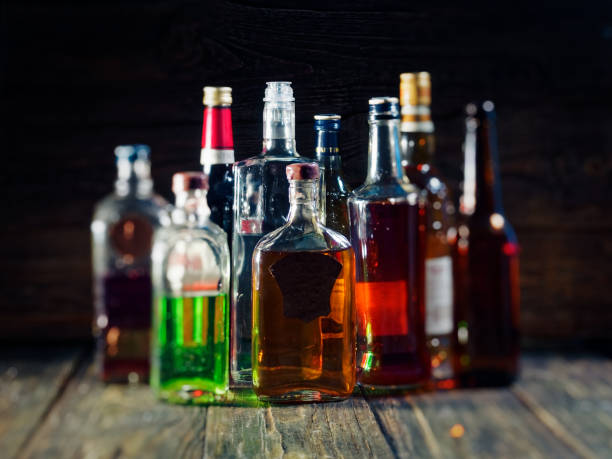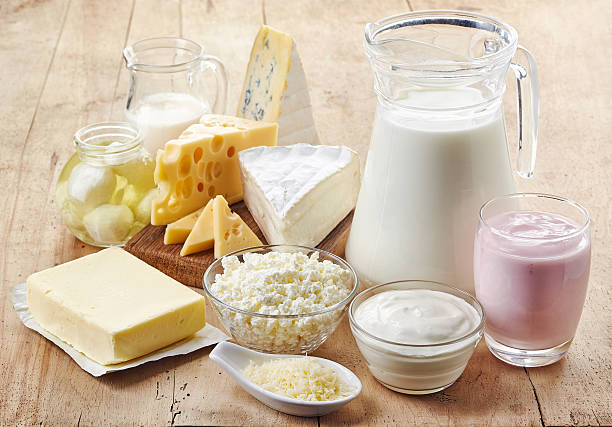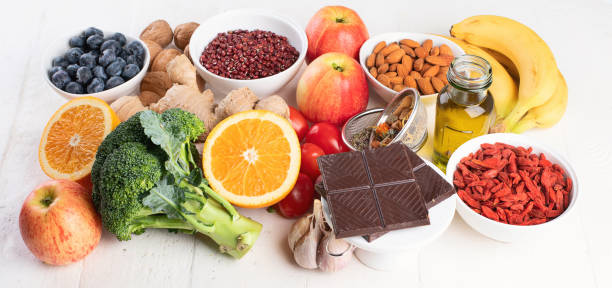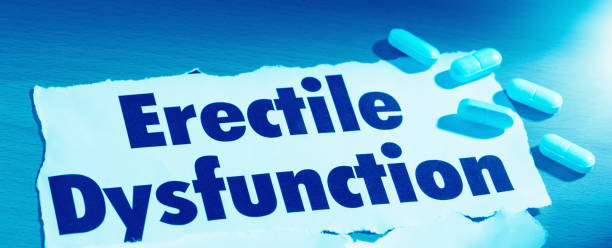Understanding the Link Between Diet and Erectile Dysfunction
Erectile dysfunction (ED) is a common condition that affects millions of men worldwide. While factors like stress, lifestyle choices, and underlying health conditions contribute to ED, diet plays a crucial role in sexual health. The foods you consume can either support healthy blood circulation or restrict it, directly impacting your ability to achieve and maintain an erection.
A diet high in processed foods, unhealthy fats, and added sugars can lead to poor heart health, weight gain, and reduced blood flow—all of which can make ED worse. On the other hand, eating nutrient-rich foods can improve circulation and support overall well-being. If you want to boost your performance naturally, it’s essential to avoid foods that negatively affect blood flow and hormone levels.
Let’s explore the worst foods for erectile dysfunction and why cutting them out of your diet can help improve your sexual health.
1. Processed and Fried Foods
How Processed and Fried Foods Affect ED
Highly processed and fried foods are loaded with unhealthy trans fats and excessive sodium. These harmful ingredients contribute to high cholesterol, clogged arteries, and poor blood circulation. Since erections depend on strong blood flow, eating too many processed or fried foods can make it harder to perform in the bedroom. Over time, these foods may also lead to weight gain and insulin resistance, both of which are linked to erectile dysfunction.
Better Alternatives
- Use heart-healthy oils – Cook with olive oil or avocado oil instead of vegetable oils high in trans fats.
- Choose healthier cooking methods – Opt for grilled, baked, or steamed meals instead of fried options.
- Eat whole foods – Focus on fresh, unprocessed ingredients like lean proteins, fruits, and vegetables to support better circulation and overall health.
2. Sugary Foods and Beverages
The Impact of Sugar on Sexual Health
Eating too much sugar can harm your body in several ways, including your sexual health. High sugar intake leads to weight gain, insulin resistance, and an increased risk of type 2 diabetes—all of which are linked to erectile dysfunction. Excess sugar also triggers inflammation and contributes to hormonal imbalances, lowering testosterone levels. Since testosterone plays a key role in libido and performance, a high-sugar diet can reduce your energy and sexual drive over time.
Consuming sugary foods and drinks, like candy, pastries, and soda, also causes spikes and crashes in blood sugar. These fluctuations can leave you feeling sluggish and affect your ability to maintain an erection.
Better Alternatives
- Choose natural sweeteners – Opt for honey, stevia, or maple syrup instead of refined sugar.
- Satisfy cravings with fresh fruit – Berries, apples, and oranges provide natural sweetness while supporting overall health.
- Drink smarter – Swap sugary sodas and energy drinks for water, herbal tea, or infused water with lemon and mint.

3. Alcohol and Excessive Caffeine
Alcohol: A Major Libido Killer
While an occasional drink may not cause harm, excessive alcohol consumption can have serious effects on sexual health. Heavy drinking lowers testosterone levels, damages nerves, and weakens blood vessels, all of which can make it harder to achieve and maintain an erection. Alcohol can also interfere with sleep and increase stress, both of which contribute to erectile dysfunction over time.
Caffeine and ED: Friend or Foe?
Caffeine, when consumed in moderation, may actually support circulation and improve alertness. However, drinking too much caffeine can lead to high blood pressure, increased stress, and disrupted sleep—factors that negatively affect sexual performance. Overconsumption of caffeine can also cause dehydration, reducing blood flow and energy levels needed for intimacy.
Better Alternatives
- Limit alcohol intake – Stick to moderate drinking (no more than one drink per day for men) to avoid long-term negative effects.
- Choose healthier beverages – Swap excessive coffee consumption for herbal teas, such as chamomile or ginseng, which promote relaxation and support blood flow.
- Stay hydrated – Drinking enough water throughout the day helps maintain circulation and overall health, improving sexual function.
4. Refined Carbohydrates and White Flour
How Refined Carbs Affect Sexual Health
Refined carbohydrates, such as white bread, pasta, and pastries, offer little nutritional value and can negatively impact sexual health. These foods cause rapid spikes in blood sugar, leading to energy crashes that leave you feeling sluggish. Over time, a diet high in refined carbs can contribute to weight gain, insulin resistance, and type 2 diabetes—three major risk factors for erectile dysfunction. Poor circulation, caused by unstable blood sugar levels, also affects your ability to maintain an erection.
Eating too many refined carbs can also lead to increased inflammation in the body, which may lower testosterone levels and reduce libido. Switching to healthier alternatives can help stabilize blood sugar and support overall well-being.
Better Alternatives
- Choose whole grains – Replace white bread and pasta with fiber-rich options like quinoa, brown rice, whole-wheat bread, and oats.
- Increase fiber intake – Eat more vegetables, beans, and nuts to help regulate blood sugar and improve circulation.
- Focus on balanced meals – Combine whole grains with lean proteins and healthy fats to maintain steady energy levels throughout the day.
5. High-Sodium Foods
Why Salt is a Silent Killer
A diet high in sodium can be harmful to your heart—and your sexual health. Excess salt intake contributes to high blood pressure, which narrows blood vessels and restricts blood flow to the penis. Since strong circulation is essential for achieving and maintaining an erection, too much salt in your diet can increase the risk of erectile dysfunction.
Processed and fast foods are some of the biggest sources of hidden sodium. Items like chips, canned soups, frozen dinners, and restaurant meals often contain far more salt than the body needs. Over time, this can lead to heart disease, kidney problems, and reduced blood vessel function, all of which negatively impact sexual performance.
Better Alternatives
- Flavor with herbs and spices – Use garlic, turmeric, basil, and other natural seasonings instead of salt.
- Choose fresh, whole foods – Opt for fresh meats, fruits, and vegetables over pre-packaged or processed meals.
- Read food labels – Look for low-sodium options and avoid products with excessive added salt.

6. Dairy Products High in Saturated Fats
The Downside of Full-Fat Dairy
Full-fat dairy products, such as whole milk, cheese, and butter, contain high levels of saturated fats. These unhealthy fats can raise cholesterol levels, leading to clogged arteries and reduced blood flow. Since proper circulation is essential for strong erections, consuming too much full-fat dairy may increase the risk of erectile dysfunction.
Research also suggests that dairy products may affect hormone levels. Some studies indicate that dairy consumption can lower testosterone, a key hormone for libido and sexual performance. Additionally, dairy products often contain artificial hormones from cows, which may further disrupt the body’s natural balance.
Better Alternatives
- Choose plant-based milk – Swap cow’s milk for almond, oat, or soy milk, which are lower in saturated fats.
- Opt for low-fat dairy – If you consume dairy, choose low-fat or skim options in moderation.
- Incorporate heart-healthy fats – Include foods like avocados, nuts, and olive oil to support healthy circulation.
7. Processed Meats and Red Meat
The Link Between Red Meat and ED
Eating too much processed meat, such as bacon, sausages, and deli meats, as well as fatty cuts of red meat, can negatively impact heart health. These meats are high in saturated fats and cholesterol, which contribute to clogged arteries and poor circulation. Since strong blood flow is essential for erectile function, a diet rich in processed and fatty red meats may increase the risk of erectile dysfunction.
In addition, processed meats often contain preservatives and chemicals that can cause inflammation and oxidative stress, further harming blood vessel function. While red meat can be part of a balanced diet, it’s important to consume it in moderation and choose healthier protein sources.
Better Alternatives
- Opt for lean meats – Choose chicken, turkey, or fish, which are lower in saturated fats and better for heart health.
- Add plant-based proteins – Incorporate beans, lentils, quinoa, and tofu to reduce meat consumption while still meeting protein needs.
- Choose grass-fed options – If eating red meat, opt for lean, grass-fed cuts, which contain healthier fats and fewer additives.
8. Artificial Sweeteners and Diet Soda
Are Diet Drinks Really a Better Option?
Many people turn to diet sodas and artificial sweeteners as a “healthier” alternative to sugary drinks, but they may do more harm than good. Artificial sweeteners like aspartame can interfere with serotonin production, a neurotransmitter that plays a key role in mood and libido. Low serotonin levels can lead to increased stress, anxiety, and a decreased interest in sex.
Additionally, some studies suggest that diet sodas may contribute to metabolic issues, including insulin resistance and weight gain. Poor metabolic health is closely linked to erectile dysfunction, as it affects blood circulation and hormone balance. While more research is needed, limiting artificial sweeteners may be beneficial for overall well-being and sexual health.
Better Alternatives
- Drink more water – Staying hydrated supports circulation and overall health.
- Switch to herbal teas – Chamomile, green tea, and hibiscus tea offer health benefits without artificial additives.
- Try natural flavoring – Infuse water with lemon, cucumber, berries, or mint for a refreshing taste without harmful chemicals.
- Reduce reliance on artificial sweeteners – Gradually cut back on diet sodas and processed “sugar-free” products to improve metabolic and sexual health.

Foods That Can Improve Erectile Function
Now that we’ve covered the foods to avoid, let’s focus on the ones that can enhance blood flow, support a healthy libido, and improve overall sexual performance. Adding these nutrient-rich foods to your diet can help boost circulation, balance hormones, and promote better erectile function.
- Leafy Greens – Spinach, kale, and arugula are rich in nitrates, which help relax blood vessels and improve circulation. Better blood flow leads to stronger, longer-lasting erections.
- Berries – Strawberries, blueberries, and raspberries are packed with antioxidants that protect blood vessels from damage and support heart health.
- Nuts and Seeds – Almonds, walnuts, flaxseeds, and chia seeds provide essential fatty acids and zinc, which support testosterone production and overall sexual function.
- Dark Chocolate – High in flavonoids, dark chocolate improves circulation by helping blood vessels expand, leading to better blood flow.
- Watermelon – This refreshing fruit is a natural source of citrulline, an amino acid that helps relax blood vessels and improve erectile function.
Incorporating these foods into your daily diet can naturally enhance performance and support long-term sexual health.
Take Control of Your Health Today
Erectile dysfunction isn’t just a natural part of aging—it’s often a warning sign of underlying health issues, such as poor circulation, hormone imbalances, or heart disease. The good news is that many of these factors can be improved through smarter dietary choices. By reducing processed foods, cutting back on excessive sugar, and avoiding unhealthy fats, you can support better blood flow, boost testosterone levels, and enhance overall sexual performance.
Improving your diet doesn’t have to be overwhelming. Small, consistent changes—like swapping refined carbs for whole grains, eating more antioxidant-rich foods, and staying hydrated—can lead to significant improvements in your health and well-being.
Ready to take the next step? Start by making simple adjustments to your diet today. Have questions or personal experiences to share? Drop a comment below—we’d love to hear from you!

